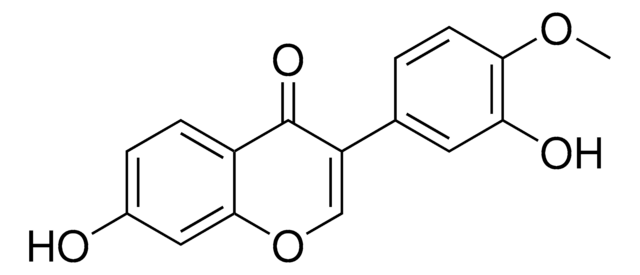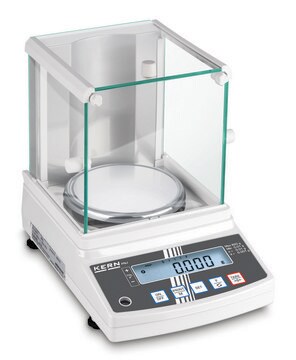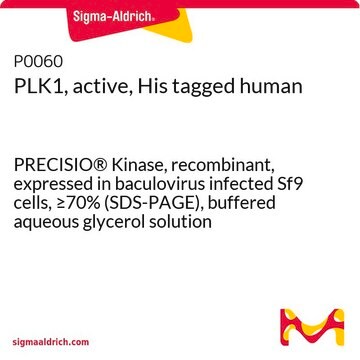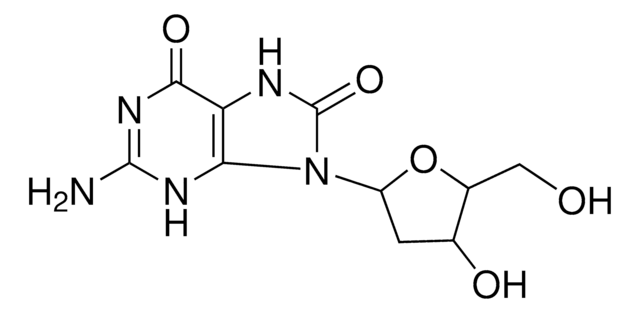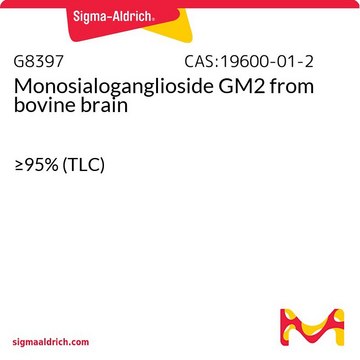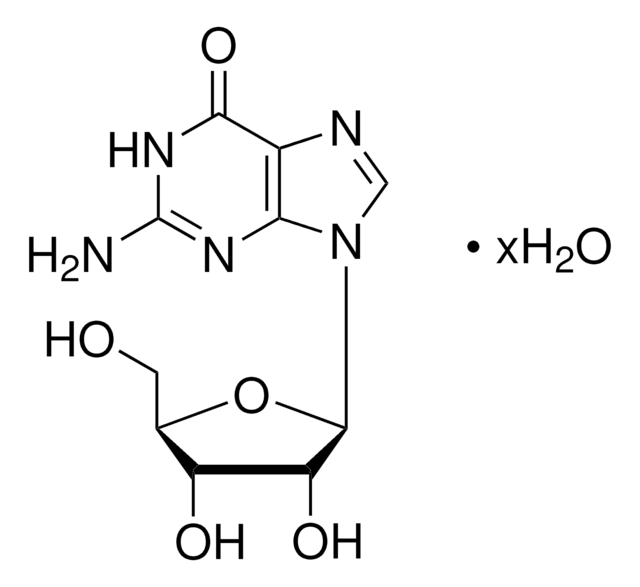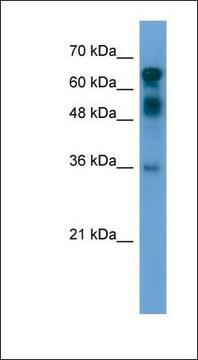38361
Abberior® STAR 440SXP, maleimide
for long Stokes STED and 2-color STED application
Sign Into View Organizational & Contract Pricing
All Photos(1)
About This Item
UNSPSC Code:
12352111
NACRES:
NA.32
Recommended Products
Assay
≥80.0% (degree of coupling)
mol wt
Mw 622.6 g/mol
solubility
DMF: 1 mg/mL, clear
fluorescence
λex 437 nm; λem 515 nm±5 nm in PBS, pH 7.4
storage temp.
−20°C
General description
Absorption Maximum, λmax: 433 nm (MeOH)
432 nm (PBS, pH 7.4)
Extinction Coefficient, ε(λmax): 36,000 M-1cm-1 (MeOH)
33,000 M-1cm-1 (PBS, pH 7.4)
Correction Factor, CF260 = ε260/εmax: 0.47 (PBS, pH 7.4)
Correction Factor, CF280 = ε280/εmax: 0.31 (PBS, pH 7.4)
Fluorescence Maximum, λfl: 502 nm (MeOH),
511 nm (PBS, pH 7.4)
Recommended STED Wavelength, λSTED: 590 − 620 nm
Fluorescence Quantum Yield, η: 0.57 (PBS, pH 7.4)
Fluorescence Lifetime, τ: 3.7 ns (PBS, pH 7.4)
432 nm (PBS, pH 7.4)
Extinction Coefficient, ε(λmax): 36,000 M-1cm-1 (MeOH)
33,000 M-1cm-1 (PBS, pH 7.4)
Correction Factor, CF260 = ε260/εmax: 0.47 (PBS, pH 7.4)
Correction Factor, CF280 = ε280/εmax: 0.31 (PBS, pH 7.4)
Fluorescence Maximum, λfl: 502 nm (MeOH),
511 nm (PBS, pH 7.4)
Recommended STED Wavelength, λSTED: 590 − 620 nm
Fluorescence Quantum Yield, η: 0.57 (PBS, pH 7.4)
Fluorescence Lifetime, τ: 3.7 ns (PBS, pH 7.4)
Application
Abberior® STAR 440SXP has been conjugated with secondary anti-mouse antibody for dual colour STED (stimulated emission depletion) microscopy. Again, it has been labelled with secondary antibody for STED microscopy in primary hippocampal cells prepared from E18 Sprague Dawley embryos.
Suitability
Designed and tested for fluorescent super-resolution microscopy
Other Notes
Legal Information
abberior is a registered trademark of Abberior GmbH
related product
Product No.
Description
Pricing
Storage Class Code
11 - Combustible Solids
WGK
WGK 3
Flash Point(F)
Not applicable
Flash Point(C)
Not applicable
Certificates of Analysis (COA)
Search for Certificates of Analysis (COA) by entering the products Lot/Batch Number. Lot and Batch Numbers can be found on a product’s label following the words ‘Lot’ or ‘Batch’.
Already Own This Product?
Find documentation for the products that you have recently purchased in the Document Library.
I-Hsuan Wang et al.
Cell host & microbe, 14(4), 468-480 (2013-10-22)
Viral DNA trafficking in cells has large impacts on physiology and disease development. Current methods lack the resolution and accuracy to visualize and quantify viral DNA trafficking at single-molecule resolution. We developed a noninvasive protocol for accurate quantification of viral DNA-genome
Linda Westin et al.
BMC neuroscience, 15, 45-45 (2014-03-29)
Norbin is a neuron-specific, cytosolic protein that interacts with the metabotropic glutamate receptor 5 (mGluR5) and has a profound impact on mGluR5 signaling. Yet, little is known about its synaptic distribution. Here we have analyzed the spatial relationship between Norbin
S W Hell et al.
Optics letters, 19(11), 780-782 (1994-06-01)
We propose a new type of scanning fluorescence microscope capable of resolving 35 nm in the far field. We overcome the diffraction resolution limit by employing stimulated emission to inhibit the fluorescence process in the outer regions of the excitation
Marcus Dyba et al.
Nature biotechnology, 21(11), 1303-1304 (2003-10-21)
We report immunofluorescence imaging with a spatial resolution well beyond the diffraction limit. An axial resolution of approximately 50 nm, corresponding to 1/16 of the irradiation wavelength of 793 nm, is achieved by stimulated emission depletion through opposing lenses. We
Tim Grotjohann et al.
Nature, 478(7368), 204-208 (2011-09-13)
Lens-based optical microscopy failed to discern fluorescent features closer than 200 nm for decades, but the recent breaking of the diffraction resolution barrier by sequentially switching the fluorescence capability of adjacent features on and off is making nanoscale imaging routine. Reported
Our team of scientists has experience in all areas of research including Life Science, Material Science, Chemical Synthesis, Chromatography, Analytical and many others.
Contact Technical Service
